FOCUS, Palm: I-526 extension is a zombie highway project
COMMENTARY, Brack: Age, Trump will drive fall gubernatorial election
IN THE SPOTLIGHT: Titan Termite & Pest Control
GOOD NEWS: Busy airport, teacher pay hike, book drive
WHAT WE LOVE: Tell us what you love about the Lowcountry
FEEDBACK: City on a Hill commentary draws reactions
MYSTERY PHOTO: Something is under construction, but what?
S.C. ENCYCLOPEDIA: Elmore v. Rice
CALENDAR, July 2+: Lots of activities for your Fourth of July
FOCUSFOCUS, Palm: I-526 extension is a zombie highway project
By Fred Palm, contributing editor | The S.C. State Infrastructure Bank (SIB) last week voted no (4-3) again on continuing the contract for completing the I-526 extension (I-526X) in Charleston County. On Friday, the county threatened a lawsuit, claiming the SIB couldn’t pull out of the project that would connect West Ashley to Johns Island and end on James Island, traversing the Stono River over the adjacent swamp-wetlands.
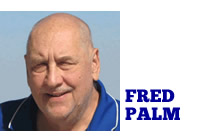 While the final costs of this addition have not been nailed down, it would be the most expensive highway expansion ever built in South Carolina. This is a big deal.
While the final costs of this addition have not been nailed down, it would be the most expensive highway expansion ever built in South Carolina. This is a big deal.
A little history
In 2016, the SIB voted no on the extension project and reiterated a position that said approval was not possible without additional funds. Further, the SIB said it would not allow the project to be partially constructed because it would “reduce the public benefits which were part of the original decision.” The SIB reserved the balance of the $420 million in financial assistance, again requesting Charleston County to come up with a plan to fund the difference.
Back in 2005, the SIB approved all of the funding for the highway extension, then estimated then at $420 million and basically said, “That is it” in terms of state money for the project. Charleston County Council voted 5-3 in 2017 to approve an ordinance committing the county to covering the shortfall for the highway, but it doesn’t specifically the county’s commitment or the source of funding.
Charleston Mayor John Tecklenburg likes this highway but has a $2 billion flood control program to finance. Basically, the SIB was saying to the Charleston County Council, “Show us the money.” Once approved, the SIB essentially said it would put forward the outlines of the financing commitment of the county and the state would go to the bond market that will evaluate the risk and establish the interest rate. But that seems to have ended with last week’s vote, which likely will face a court challenge – continuing the pouring of salt into a huge public policy wound.
Bottom line: Think of the I-526X financing as a dance of musical chairs renamed, “Who owes the money?” There is but one clear answer: Charleston County taxpayers. Even though we do not know what this proposed Interstate highway will cost the county, the majority on the Charleston County Council are willing to saddle us, the current taxpayers, and our children, with the tax burden yet to be determined.
Let’s make a deal
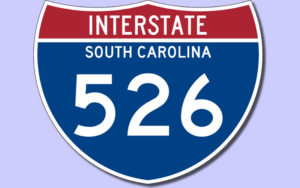 We do not know what the total costs for the I-526X project so the cost to the Charleston County taxpayers is unknown precisely. Assuming the state does come up with $420 million eventually, there are several things that we do not know that will inflate the cost, perhaps to $1 billion:
We do not know what the total costs for the I-526X project so the cost to the Charleston County taxpayers is unknown precisely. Assuming the state does come up with $420 million eventually, there are several things that we do not know that will inflate the cost, perhaps to $1 billion:
- There is no updated cost estimate subject to inflation.
- Engineering drawings have not been developed so there is no precise estimate reflecting prevailing market prices for tariffs, material, labor and return on investment to get a fix on the real cost offered by real contractors; not politicians seeking to sell the deal with low-ball estimates.
- Field and geological conditions are a wild card as we are building in a swamp.
- Recent research indicates Charleston County will lose quite a few units of existing housing to flooding and the associated tax base; that will likely cause further tax increases or refinancing and stretching the debt further out in time — say 40 or 50 years.
- Add in the additional cost for more high-water flooding that is now conveniently ignored by the county.
- Estimating the interest rate for 30-year bonds in this political environment is another wild card, as this is new territory for lenders financing flood-prone coastal projects over the long-term. The current generic municipal rate is 3 percent.
We need a plan before funding
Take the likely $1 billion total cost of the project, with less than half provided by the state, and all the now unknown overruns paid for by the county taxpayers. Then divide the county cost by the number of present and projected residents. (Growth, however, might stall when new residents take into account sky-high taxes for the highway paying for traffic that will remain congested.) The chart below estimates the local burden per person and per household:
Charleston County’s Capital Plan for FY18-FY21 averages $98 for every man, woman and child now in the county — or $189 per household. If the county’s share of the I-526X cost ended up at $600 million, that would add $76 per person, or $185 per household. If the population grew to the projected 2030 number the annual cost per person the 30-year tax tab would go down to $60 extra per person to use a road that won’t even be accessed by a lot of residents.
The promise to repay the lenders without a realistic assessment reveals a long and costly payout by the taxpayers. The irrefutable flaw is what is being spewed by the county is there is no real financial plan to repay the lenders, and as if it were fully and professionally revealed, it will scare all. This basic flaw, has been repeatedly recognized by the SIB, which is acting, intentionally or not, in the interests of the taxpayers here, even though the current majority of our county local officials are not.
The inescapable conclusion is we have far too few taxpayers, with or without population growth, to shoulder the risks of expanding I-526. If the I-526X repayment burden is added to the tax bill along with the to-be-added flood protections, more school buildings and more connecting roads to serve the rest of the county residents stuck in traffic, our taxes will skyrocket while the region’s basic traffic impasses will not be substantially reduced.
There are far less expensive ways to build a highway to evacuate James and Johns Islands. That is what we should be talking about — the low- cost options of getting that job done. The answer is not this Interstate. We need to move on quickly for the overall public interest.
Fred Palm of Edisto Island is a retired professor of oversight and investigations at the John Jay College School of Public Management and a former executive director of the Association of Inspectors General. He writes about the Common Good.
- Have a comment? Send to: editor@charlestoncurrents.com
BRACK: Age, Trump will drive fall gubernatorial election
By Andy Brack, editor and publisher | In more ways than one, South Carolina’s fall gubernatorial election will hinge on age.
 Republican Gov. Henry McMaster, who nabbed a primary runoff victory in an election much closer than expected, is 71. His Democratic opponent, longtime state Rep. James Smith of Columbia, is a generation younger at age 50.
Republican Gov. Henry McMaster, who nabbed a primary runoff victory in an election much closer than expected, is 71. His Democratic opponent, longtime state Rep. James Smith of Columbia, is a generation younger at age 50.
In the months ahead, expect to hear both talking about experienced leadership, but in different ways.
McMaster will focus on South Carolina’s general successes and how it’s smart to keep the state’s coach when the state has low unemployment. Smith, who will benefit from the bruising done to McMaster by four GOP primary opponents, will question whether the state as a whole is really doing as well for everyone. He’ll likely make a case that it is time to change the coach to try new solutions, not keep someone who has been fighting the same ideological battles for decades.
“It’s in McMaster’s best interest to get James to focus on individual issues,” observed former Democratic state Sen. Phil Leventis of Sumter. “It’s in James’s best interest to try to focus on basically the almost two-decade rule of [Mark] Sanford, [Nikki] Haley and now McMaster that resulted in no measurable progress for the vast majority of people in South Carolina.”
Leventis said it is easy for the incumbent to point to job-laden successes like Boeing and Volvo during the campaign.
“Those are great – we’re happy to have them — but those are the exceptions, not the norms,” Leventis noted, adding Republican leadership had not effectively dealt with the state’s huge challenges in education, health care and poverty
Another observer suggested Smith would try to appeal to younger and independent voters by focusing on a new generation of ethical leadership with experience to get things done by working across the aisle – and without getting as hung up on old-timey ideology.
But the election could boil down to something much simpler than age depending on what’s happening nationally. It could become a referendum on President Donald Trump. If Trump, the most Teflon of presidents, weathers continuing scandals like a duck repels water, then McMaster’s ongoing reminders of his close ties to the president might pay off. But if Trump starts sinking under the weight of a special counsel’s enduring probe into Russian fiddling with the 2016 elections, McMaster’s ties to the president could turn sour at the polls.
“There was no policy discussion of any legitimacy n the Republican primary,” said GOP observer Chip Felkel of Greenville, who thought the linchpin for the eventual winner rested with Trump’s fate. “It was all about kissing his ring. The Democrats seemed to be more interested in policy. “
Felkel also said Trump’s tariffs on foreign goods could come home to roost by hurting South Carolina jobs.
“Trump’s policies are eventually going to affect South Carolina employment numbers when it comes to tariffs and the automotive and airline industries. I know Henry is Trump’s guy, but how is that helping South Carolina?”
Three other issues may drive voters in November:
Energy. McMaster and Smith agree a just-passed legislative rate cut for SCE&G ratepayers wasn’t enough because continues to subsidize the failed V.C. Summer nuclear project. Smith may be able to capitalize on the issue by saying McMaster was part of the leadership that led to the debacle. Although Smith was a member of the legislature then, he was serving in the military in Afghanistan when the enabling legislation passed that caused the mess.
Corruption. A whiff of ongoing scandal still scents Columbia’s air. McMaster got beaten up in opponents’ ads in the primary that tied him to a campaign consultant he used for years who got caught in the investigation. This story line could validate Smith’s assertion that ethical leadership is needed and might appeal to anyone tired of good old boys in Columbia.
Health care. During the primary, Smith telegraphed a big campaign theme would be access to affordable health care – something that eludes thousands of South Carolina, in part, because the state’s GOP leaders refused to accept billions of dollars in federal money to expand Medicaid services. Recent ideological GOP attacks on abortion providers also could backfire.
- Have a comment? Send to: editor@charlestoncurrents.com
SPOTLIGHT: Titan Termite & Pest Control
 Titan Termite & Pest Control, headquartered in Charleston, is a full service residential, commercial and industrial pest control company serving South Carolina. It is a third-generation, family-owned company known for outstanding customer service. Each associate is dedicated to the customer and exhibits integrity and respect. Titan’s pest professionals can assist your commercial or residential location with general pest control, termite inspections, termite control, flea control, bed bug extermination, ant control and more. Titan Termite and Pest Control continues to set high standards so that its customers receive the best possible service. Titan’s technicians are knowledgeable of the latest in pest control techniques, which enables the company to customize effective treatment plans for every situation.
Titan Termite & Pest Control, headquartered in Charleston, is a full service residential, commercial and industrial pest control company serving South Carolina. It is a third-generation, family-owned company known for outstanding customer service. Each associate is dedicated to the customer and exhibits integrity and respect. Titan’s pest professionals can assist your commercial or residential location with general pest control, termite inspections, termite control, flea control, bed bug extermination, ant control and more. Titan Termite and Pest Control continues to set high standards so that its customers receive the best possible service. Titan’s technicians are knowledgeable of the latest in pest control techniques, which enables the company to customize effective treatment plans for every situation.
- Free estimate: 888-794-5603.
- Contact Titan online.
GOOD NEWS: Busy airport, teacher pay hike, book drive
Staff reports | There’s lots of good news to go around these days, from our busy local airport bringing in thousands of visitors to teachers getting a slight raise. Check out these news briefs:
Busy month at the airport. May was the busiest month yet of 2018 at Charleston International Airport, which had 435,093 people flying in and out – a 13.6 percent increase over last May, according to airport officials. “The summer travel season kicked off in May in a big way,” said Paul G. Campbell, Jr., executive director and CEO of the Charleston County Aviation Authority. “We’re thankful for continued growth at the airport. It allows us to provide great destinations and exceptional service to our customers, and it is vital to our support of and role in the economic prosperity of the Lowcountry region and the state.”
Teachers get small raise. Public school teachers are getting a 1-percent raise – less than $10 a week for many – but Lindsay Street of our sister publication, Statehouse Report, highlights how lawmakers continue to underfund required levels of public K-12 education: “In the current 2017-18 fiscal year, the state spent $2,425 per student to fund public education, an increase of $75 per student over the previous year’s $2,350 base student cost. It’s another year in the trend of increasing this funding stream, which is still millions below state mandated levels.” Read the full story.
July book drive. You can drop off children’s books throughout July at six branches of the Charleston County Public Library system to support a book drive organized by the Cynthia Graham Hurd Foundation and Reading Partners. According to a press release, The books will help the students build a love for reading by having their own at-home libraries. Book donors are asked to give new or gently-used children’s books for students in kindergarten through fifth grad at these branches: Dorchester Road, Hurd/St. Andrews, John’s Island, Main, Mount Pleasant or Otranto Road. More drop-off points are at three Mellow Mushroom restaurants in North Charleston, West Ashley and Summerville. More info.
North Charleston exhibit: Paintings by Conway artist Rachel Jones and modern photographs by New York’s Thomas Pickarski will be on exhibit in the North Charleston City Gallery through the end of July. The exhibit will feature a collection of female portraits by Jones as well as contemporary photographs of icescapes and icebergs by Pickarski. The gallery is in the northwest corner of the Charleston Area Convention Center, located at 5001 Coliseum Drive in North Charleston. Admission is free. More: See the arts and culture section of the city’s website.
Middleton welcomed. Charleston Mayor John Tecklenburg last week welcomed the Rev. Kylon Middleton, pastor of Mount Zion AME Church in Charleston, to lead the new Charleston Illumination Project. It started in response to the June 2015 shooting at Mother Emanuel AME Church and engages community members in order to strengthen citizen and police relationships grounded in trust and legitimacy. In a press statement, Tecklenburg said, “I am incredibly grateful to Margaret Seidler for her passion and dedication to this project over the past few years. Her efforts have been integral to the Illumination Project’s success, and I am confident that Reverend Middleton, a Charleston native and active member of our community, will continue to carry out that legacy in the years to come.””
WHAT WE LOVETell us what you love
![]() Send a short comment – 100 words to 150 words – that describes something you really enjoy about the Lowcountry. It can be big or small. It can be a place, a thing or something you see. It might the bakery where you get a morning croissant or a business or government entity doing a good job. We’ll highlight your entry in a coming issue of Charleston Currents. We look forward to hearing from you.
Send a short comment – 100 words to 150 words – that describes something you really enjoy about the Lowcountry. It can be big or small. It can be a place, a thing or something you see. It might the bakery where you get a morning croissant or a business or government entity doing a good job. We’ll highlight your entry in a coming issue of Charleston Currents. We look forward to hearing from you.
Commentary on letting freedoms slip away draws reactions
To the editor:
![]() Excellent piece. Like you said, we shouldn’t have to be reminded of these things, but here we are in 2018 and we do have to be reminded. It is maddening.
Excellent piece. Like you said, we shouldn’t have to be reminded of these things, but here we are in 2018 and we do have to be reminded. It is maddening.
— David Topham, Charleston, S.C.
Trump may be a pig, but he’ll get down in the slop
To the editor:
I just finished reading your essay “City on a Hill,” and I’d like to offer a thought or two.
I get the impression that you’re not much of a Donald Trump fan. I wasn’t either, but I’ve warmed up to him a bit. Here’s why.
Trump is constantly being painted in the liberal press as the problem. I think he is more of a symptom. We’ve been lied to by so many politicians since, well, the beginning of time that politics have become a laughing stock. George Bush raised taxes. Bill Clinton lied. George W. Bush put us on a spending spree to punish someone for 9/11 and to export our way of life to an unreceptive part of the world. Obama called that spending un-American, then doubled it. That’s just the presidents.
Our borders are being overrun by people who, yes, want a better life, but are untrained to participate in our society and don’t really want to join it, but rather want to establish enclaves of their home culture here. There are people who have vowed to destroy us, yet we are told we must allow them into the country because it’s the American thing to do. Meanwhile, we watch how Europe falls apart, changed for the worse probably forever by doing the same thing. Our educational system is more interested in making sure everyone knows Johnny can have two dads rather than learning the history of the nation, how to read, how to calculate or how to think. Our educators want to teach them what to think.
Enter Donald Trump — a true product of the media-hyping, celebrity-is-all-that -matters, ratings-oriented world we’ve created. I consider myself to be a fiscal conservative/social liberal (OK, maybe moderate), and I was not a Trump fan. I voted for Cruz in the primary, and Gary Johnson in the general, but if I was in Ohio ( my home state), North Carolina, Michigan (God forbid), Wisconsin or Pennsylvania. I’d have held my nose and voted for Donald. Hillary Clinton has always been an evil, conniving, dirty-dealing hypocrite, and would have taken the country to even greater depths. I look at Trump, and I see a pig who is willing to get down in the slop and push back against all the other pigs who have occupied office for far too long.
The only way to save the nation, IMHO, is strict and short-term limits, but for the time being I’ll settle for the Donald, and watch him drive all the entrenched politicians and media divas nuts. It’s kind of refreshing.
— Phil Tackett, Summerville, S.C.
McCain on American exceptionalism
[Editor’s note: One reader sent a quote from U.S. Sen. John McCain’s “The Restless Wave, page 81) as a response to Andy Brack’s June 25 commentary]
To the editor:
“What makes us exceptional? Our wealth, Our natural resources? Our military power, Our big bountiful country? No, our founding ideals and our fidelity to them at home and in our conduct in the world make us exceptional. ….Facing threats with confidence that our values make us stronger than our enemies. Acting as an example to other nations how free people defend their liberty without sacrificing the moral conviction upon which it is based, respect for the dignity possessed by all God’s children, even our enemies. This is what makes us the great nation we are.”
— William Heitsman, Darlington, S.C.
Send us your letters. We love hearing from readers. Comments are limited to 250 words or less. Please include your name and contact information. Send your letters to: editor@charlestoncurrents.com. | Read our feedback policy.
MYSTERYMYSTERY PHOTO: Something is under construction, but what?
Got any idea what and where this is? Hint: It’s in the tri-county area. Send your best guess – plus your name and hometown – to editor@charlestoncurrents.com. In the subject line, write: “Mystery Photo guess.” (If you don’t include your contact information, we can’t give you credit!)
Last issue’s mystery
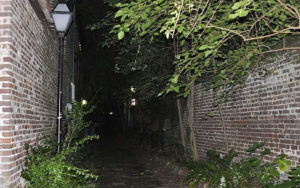 The June 25 mystery photo (“Where it looks like Halloween all of the time”) showed Philadelphia Alley in downtown Charleston. A few people guessed neighboring back streets, but everyone who entered knew it was a Charleston alley – a navigational feature that seems to have evaporated in modern subdivisions.
The June 25 mystery photo (“Where it looks like Halloween all of the time”) showed Philadelphia Alley in downtown Charleston. A few people guessed neighboring back streets, but everyone who entered knew it was a Charleston alley – a navigational feature that seems to have evaporated in modern subdivisions.
Thanks to all who guessed … and hat’s off to those who correctly identified the photo: Stephen Yetman and Matthew Hubbard, both of Charleston; George Graf of Palmyra, Va.; Brian Hedden of North Charleston; Archie Burkel of James Island; Kristina Wheeler of West Ashley; and Chris Brooks of Mount Pleasant.
Burkel noted that the alley runs along The Footlight Players’ theater between Queen and Cumberland streets “and is one of the most haunted passage ways in Charleston..”
Wheeler said despite the alley’s spooky history, she enjoys strolling down the alley, which is “rumored to be the only place within the original walled city that you could hide from the churches of the holy city – never was sure about this, since St. Phillip’s is so close”
Graf provided more context gleaned from the Charleston County Public Library: “On 7 October 1810, a large fire raged from Church Street on the west to East Bay Street to the east, and ranging from Amen and Motte Streets (now included in Cumberland Street) as far south as Broad Street. News of the Charleston fire traveled northward, and by the end of October the city learned that the citizens of Philadelphia were gathering funds for the relief of Charleston’s sufferers.
“By mid-November the intendant (mayor) of Charleston acknowledged receipt of $6,000 in aid from Philadelphia, and by the end of the month a further $2,000 arrived. On 30 January 1811, Charleston’s City Council passed an ordinance to assess and compensate property owners for the purpose of widening and opening the streets where the fire took place. This ordinance also formally changed the name of Kinloch’s Court to Philadelphia Street (not Alley). The proceedings of City Council from this era do not survive, however, so it is not possible to determine how this street’s new name was selected.”
Send us a mystery: If you have a photo that you believe will stump readers, send it along (but make sure to tell us what it is because it may stump us too!) Send it along to editor@charlestoncurrents.com.
S.C. ENCYCLOPEDIAHISTORY: Elmore v. Rice
S.C. Encyclopedia | One month after the South Carolina General Assembly repealed all statutes related to party primaries in the state in order to maintain its white primary, African American leaders formed the Progressive Democratic Party for the purpose of challenging the white primary system. In 1946 George Elmore, an African American who was eligible to vote in general elections, was denied the right to vote in the Democratic Party primary in Richland County in which party nominees for the U.S. Senate, the U.S. House of Representatives, and state offices were chosen. Citing several provisions of the U.S. Constitution, Elmore claimed that his right to choose members of Congress had been violated because of his race. He also argued that his right to participate on an equal basis in state and federal elections had been denied, since the primaries controlled the choice of elected officials.
The case was heard by U.S. District Judge J. Waties Waring, a native Charlestonian. Waring noted that since 1900 every governor and member of the General Assembly and Congress elected in the general election had been the nominee of the state’s Democratic Party, which during the previous twenty-five years was the only party in South Carolina holding statewide primaries. He concluded that the repeal of all statutes and regulations in 1944 made no appreciable difference in the selection process of state officials and that the sole purpose of repealing the statutes and constitutional provisions was to prevent blacks from voting. Waring concluded that the state’s Democratic Party was acting for and on behalf of the citizens of South Carolina and that the party’s primary election was the only practical place where the voters could make their choices in selecting elected officials at the federal and state levels. He added the cutting comment that it was “time for South Carolina to rejoin the Union. It is time to fall in step with the other states and to adopt the American way of conducting elections.”
The response of the state’s Democratic Party Executive Committee was to require that everyone who voted in the party’s primary would have to take an oath stating that they would support the social, religious, and educational separation of the races. At least six local Democratic county committees, however, ignored the oath and began registering African American voters. In July 1948 Judge Waring’s court rejected the oath. Waring’s decisions were affirmed by the U.S. Court of Appeals for the Fourth Circuit. The U.S. Supreme Court refused to review the case. Democratic Party chair W. P. Baskin subsequently advised county chairs to enroll all constitutionally qualified electors on July 23, 1948. By the time of the August 1948 primary, some 35,000 African Americans were registered to vote and the white primary in South Carolina ceased to exist.
— Excerpted from an entry by William V. Moore. To read more about this or 2,000 other entries about South Carolina, check out The South Carolina Encyclopedia, published in 2006 by USC Press. (Information used by permission.
ON THE CALENDARCALENDAR, July 2+: Lots to do for July 4 celebration, more
Staff reports | There are lots of ways to enjoy the mid-week July 4 holiday in the Lowcountry. If you’re looking for great places to watch fireworks, we suggest that you get on the top of some tall building … because you can see more than one display on the holiday night. Our past favorite: The round Holiday Inn on the Ashley River. (It’s air-conditioned and you can get a beer!)
Some fireworks venues and locations to enjoy the shows:
North Charleston, Riverfront Park: The city will have the largest fireworks show and live music at the park, 1061 Everglades Ave., North Charleston. Free.
Mount Pleasant, Patriots Point: The Yorktown carrier is reportedly booked full of fireworks watchers, but you can still enjoy the display from the land in the Fireworks Blast at Patriots Point. Parking is $10.
Mount Pleasant, Uncle Sam Jam: You can celebrate the Fourth of July on the Mount Pleasant Pier! Dance to Carolina beach and party music performed by Ellen Drive, at an excellent venue for viewing fireworks displays throughout the Lowcountry. Beverages will be available for purchase. Outside alcohol, beverages and coolers are strictly prohibited. Tickets $8 in advance and are limited; advance purchase is recommended. More.
Charleston, Sea Stars and Stripes: You also can view displays at the S.C. Aquarium, 100 Aquarium Wharf, Charleston. The three-hour party starting at 7 p.m. is $60 for adults and $30 for kids. More.
Charleston, Riverdogs game: Starting time for a holiday home game is 6:35 p.m. with great fireworks after the game.
Sullivan’s Island, Fireworks in the Park: 6 p.m. to 9 p.m., J. Marshall Stith Park, 2050 Middle Street. Free.
Isle of Palms fireworks: 8 p.m., front beach, free.
Folly Beach, Fourth of July Fireworks: 9:30 p.m., third block west on Folly Beach. Free.
Also on the Calendar:
Magnolia’s History Fair: 10 a.m. to 4 p.m., July 7, Magnolia Plantation and Gardens, Charleston. You’ll have an opportunity to meet representatives of 34 historic groups. The event is designed for amateur and serious historians and children who want to touch the past. Among those available are storyteller Kitty Wilson-Evans, who portrays an 18th century enslaved worker named Kessie; master brick maker Rick Owens will demonstrate early brick-making techniques near the Peacock Café; and a presentation on living history by the Slave Dwelling Project’s Joseph McGill, Magnolia’s history consultant. More info: www.magnoliaplantation.com.
Music Under the Oaks: 11 a.m. on July 7 and Aug. 4, Charles Pinckney National Historic Site, 1254 Long Point Road, Mount Pleasant. On June 2, NIA Productions will feature African drumming and dance; On July 4, the show will feature singer Ann Caldwell while the Plantation Singers will perform Aug. 4. Bring sunscreen and insect repellant.
Second Sunday Sail: Departs 7 p.m., July 8, Aug. 12, Sept. 9, Aquarium Wharf, Charleston. Take a two-hour sunset sail on the schooner Pride. Adults will taste fine wines and nibble on tasty treats. Tickets: $85 per person. Click here for more.
Disconnected: Works by Christine Bush Roman: Now through Aug. 5, City Gallery, 14 Prioleau St., Charleston. The City of Charleston Office of Cultural Affairs will present this show in which the artist combines transfer techniques with painting, drawing and collage to give glimpses into the intricate and contradictory nature of modern life. The works explore postpartum depression, mental illness, and a life out of balance, while examining the web of issues that lead to detachments from one another and the natural world. More: www.charleston-sc.gov/citygallery.
Historic Charleston house tours. 10:30 a.m. to 12:30 p.m., every Tuesday through Aug. 7 at the Nathaniel Russel House, 51 Meeting St., Charleston, and every Thursday through Aug. 9 at the Aiken-Rhett House, 48 Elizabeth St. To learn more about the event and fees, click here.
TEDxCharleston: The annual day of ideas in Charleston is accepting applications through August 27 for participants to speak or perform on issues related to the theme for April 10, 2019: Currents. The theme will explore “What trends are rising to the surface? How are science, art, culture and conversation making waves and evolving to meet the needs of future communities? What changes are happening that parallel and challenge our history?” Learn more |
sign up.
Early morning bird walks at Caw Caw: 8:30 a.m. every Wednesday and Saturday, Caw Caw Interpretive Center, Ravenel. You can learn about habitats and birds, butterflies and other organisms in this two-hour session. Registration not required, but participants are to be 15 and up. $10 per person or free to Gold Pass holders. More: http://www.CharlestonCountyParks.com.
AREA FARMERS MARKETS
SATURDAYS: The Charleston Farmers Market, is back in action from 8 a.m. to 2 p.m. every Saturday through Nov. 24 at Marion Square. A holiday market will be open Dec. 1, 2, 8. 9, 15 and 16.
SATURDAYS: Johns Island Farmers Market operates each Saturday from 9:30 a.m. to 1:30 p.m. year-round with more than 50 local farmers and vendors, food trucks, music and more. The market is located on the campus of Charleston Collegiate School, 2024 Academy Road, Johns Island.
SATURDAYS: The Town Market on James Island are again open. Open 9 a.m. to 1 p.m. every Saturday at the James Island Youth Soccer Club, 871 Fort Johnson Road, James Island.
TUESDAYS: The Town of Mount Pleasant’s Farmers Market is every Tuesday from 3:30 p.m. to 7 p.m. in the market pavilion at Moultrie Middle School, 645 Coleman Blvd, in Mount Pleasant.
WEDNESDAYS. The West Ashley Farmers Market, 55 Sycamore Ave., is open every Wednesday from 3 p.m. to 7 p.m. in Ackerman Park. More.
- If you have an event to list on our calendar, please send it to charlestoncurrents@gmail.com for consideration. The calendar is updated weekly on Mondays.
OUR UNDERWRITERS
Charleston Currents is an underwriter-supported weekly online journal of good news about the Charleston area and Lowcountry of South Carolina.
- Meet our underwriters
- To learn more about how your organization or business can benefit, click here to contact us. Or give us a holler on the phone at: 843.670.3996.
OUR TEAM
Charleston Currents offers insightful community comment and good news on events each week. It cuts through the information clutter to offer the best of what’s happening locally.
- Mailing address: O. Box. 22261 | Charleston, SC 29413
- Phone: 670.3996
Charleston Currents is provided to you weekly by:
- Editor and publisher: Andy Brack, 843.670.3996
- Contributing photographer: Michael Kaynard
- Contributing editor, careers: Ben Fanning
- Contributing editor, common good, Fred Palm
- Contributing editor, money: Kyra Morris
- Contributing editor, Palmetto Poem: Marjory Wentworth
SUBSCRIBE FOR FREE
Subscriptions to Charleston Currents are free.
- Click here to subscribe.
- We don’t want to lose you as a reader of Charleston Currents, go to the bottom of any of your weekly newsletters and click the “unsubscribe” function. If that doesn’t work, please send us an email with the word “unsubscribe” in the subject line.
© 2008-2018, Statehouse Report, LLC. All rights reserved. Charleston Currents is published every Monday by Statehouse Report LLC, PO Box 22261, Charleston, SC 29413.


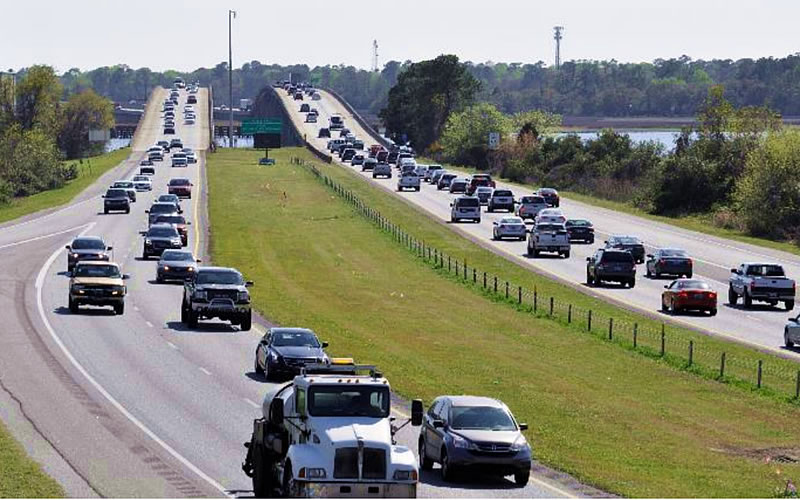
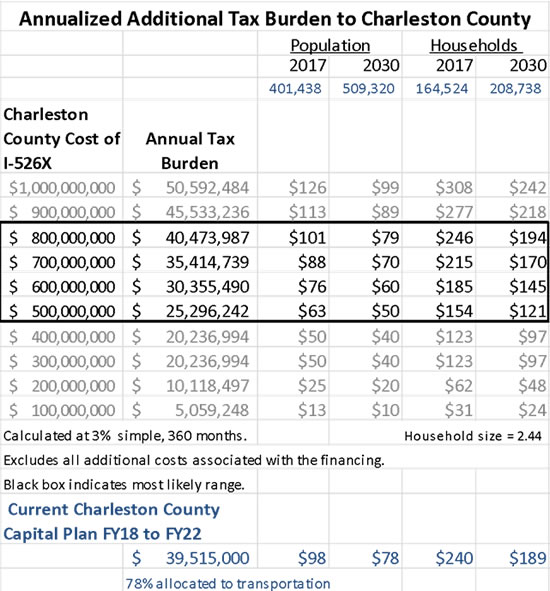

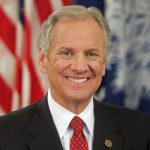



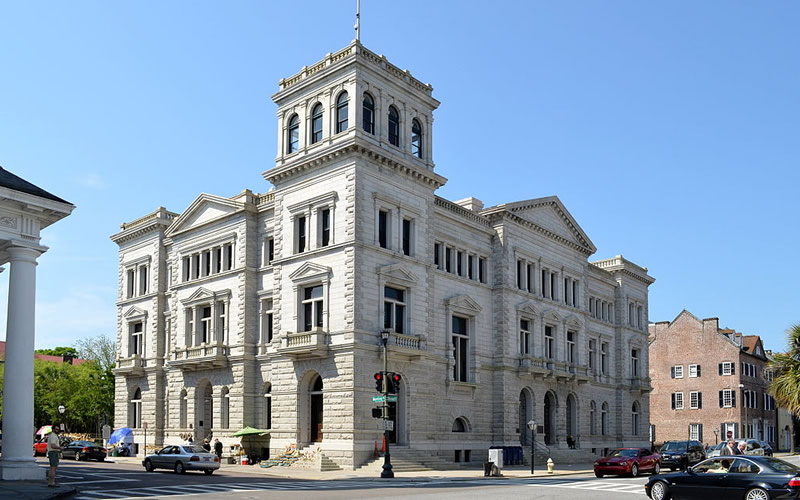


 We Can Do Better, South Carolina!
We Can Do Better, South Carolina!
























